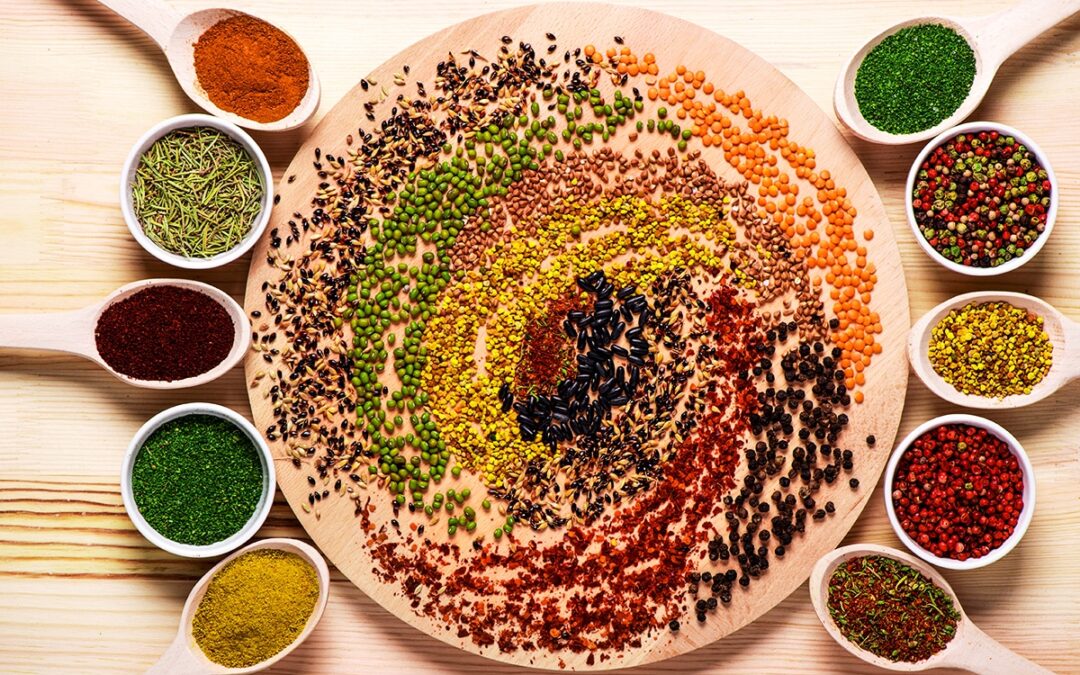The Power of Spices: A Gateway to a Healthier Lifestyle
Spices are nature’s gift to mankind, encapsulating powerful properties that can transform your food, health, and lifestyle. For centuries, these flavorful add-ons have been used for various medicinal and culinary purposes, with cultures from around the world incorporating them into their daily lives. From cumin to cinnamon, paprika to turmeric, and so much more, spices hold the key to unlock the vast potential of your meals.
The Benefits of Using Spices
Adding spices to your food not only enhances the flavor but also offers innumerable health benefits. These benefits include:
1. Enhances digestion: Spices like cumin, coriander, and fennel contain essential oils that stimulate the production of digestive enzymes and juices, thereby promoting digestion and preventing bloating.
2. Anti-inflammatory properties: Spices like turmeric, ginger, and cinnamon contain potent compounds that help alleviate inflammation in the body. This can protect against chronic diseases like cancer, diabetes, and heart disease.
3. Boosts immunity: Spices like garlic, chili peppers, and black cumin are known for their immune-boosting properties. These spices contain compounds that can help fight off viral and bacterial infections.
4. Lowers blood sugar levels: Spices like fenugreek and cinnamon can help regulate blood sugar levels, which can be beneficial for people with diabetes.
5. Aids in weight loss: Spices like cayenne pepper, black pepper, and mustard seeds contain compounds that can boost metabolism, reduce appetite, and aid in weight loss.
Ways to Spice up Your Daily Meals
Incorporating spices into your daily meals is a simple process that can transform your culinary experience. Here are some tips to get you started:
1. Experiment with new spices: Try new spices you have never used before, like cardamom, sumac, or smoked paprika. This will enhance the flavor of your meals and give you a chance to explore new cuisines.
2. Play with spice combinations: Mixing spices can create unique flavors that will add depth to your dishes. For example, mix cumin, coriander, and turmeric for a flavorful Indian-style rub.
3. Sprinkle spices on top: You can add spices to a finished dish for a quick and easy burst of flavor. Try adding cinnamon to oatmeal or roasted sweet potatoes.
4. Invest in a spice grinder: Freshly ground spices are more potent and flavorful. Invest in a spice grinder to grind your spices at home.
Healing Properties of Common Spices
Spices are a powerhouse of nutrition, offering a variety of health benefits. Here is a closer look at some of the most popular spices and their healing properties.
1. Turmeric: Turmeric contains curcumin, a potent anti-inflammatory that can help reduce joint pain and swelling. It can also help lower cholesterol levels and improve brain function.
2. Cinnamon: Cinnamon contains antioxidants that can help reduce inflammation and lower the risk of chronic diseases. It can also help regulate blood sugar levels and improve heart health.
3. Ginger: Ginger contains gingerols, a compound that has anti-inflammatory and pain-relieving properties. It can also help alleviate nausea and improve digestion.
4. Garlic: Garlic contains allicin, a compound that has antibacterial and antiviral properties. It can also help lower cholesterol levels and improve heart health.
Conclusion
Incorporating spices into your daily meals is a simple and affordable way to boost your health and enhance your culinary experience. Spices offer numerous health benefits and can be easily incorporated into a variety of cuisines. So, spice up your life and embrace the power of these flavorful ingredients!
- Act Now or Lose Forever: The Devastating Impact of Species Extinction - 21 de junio de 2023
- Act now or watch them disappear: The urgent need for endangered species conservation - 21 de junio de 2023
- A Decadent Symphony for Your Taste Buds: Gastronomic Revolution Unleashed! - 18 de junio de 2023
